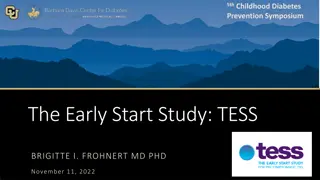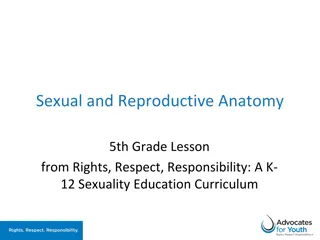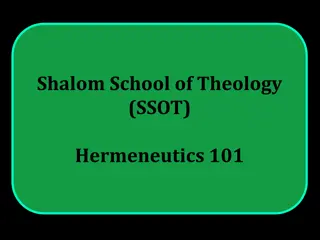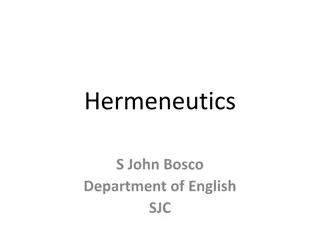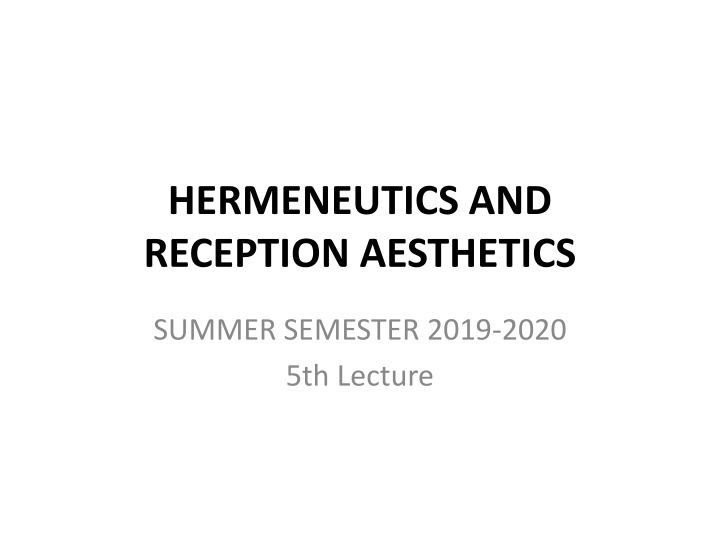
Gadamerian Philosophy and Heidegger's Influence - Summer Semester Lecture Insights
Explore the transformative philosophy of Gadamerian and Heidegger which challenges traditional perspectives by emphasizing practice over theory, circular structures of understanding, and rejecting conventional epistemology. Delve into the methodological evolution of human sciences in the 19th century and the contrasting views on knowledge in natural and human sciences.
Download Presentation

Please find below an Image/Link to download the presentation.
The content on the website is provided AS IS for your information and personal use only. It may not be sold, licensed, or shared on other websites without obtaining consent from the author. If you encounter any issues during the download, it is possible that the publisher has removed the file from their server.
You are allowed to download the files provided on this website for personal or commercial use, subject to the condition that they are used lawfully. All files are the property of their respective owners.
The content on the website is provided AS IS for your information and personal use only. It may not be sold, licensed, or shared on other websites without obtaining consent from the author.
E N D
Presentation Transcript
HERMENEUTICS AND RECEPTION AESTHETICS SUMMER SEMESTER 2019-2020 5th Lecture
Gadamerian philosophy draws its philosophical grounds from Martin Heidegger s thought. This philosophy turns traditional perspective we are used to. 1. things as present-at-hand precede bare facts; practice precedes theoretical thought 2. assertion as a derivative mode of fundamental hermeneutic interpretation 3. every meaning depends on circular structure of understanding which is embedded in the temporality of Dasein traditional epistemology, scientific approach. See previous 3rdand 4thlecture
Heidegger Gadamer Heidegger as a radical adversary of science and technology. He makes no effort to ground his philosophy in epistemology but goes back before Plato s metaphysics to archaic Greeks thought. Metaphysik Denken [Thought] Die Wissenschaft denkt nicht. Science does not think. Gadamer, on the contrary, aims at the methodology of human sciences by employing Heideggerian new philosophical perspective.
Methodology of the human sciences as a big issue of the 19thcentury Development of human sciences (Geisteswissenschaften, sciences sociales/sciences morales). Many attempts to establish their methodological grounds and find for them a unified method derived from natural sciences. Natural sciences (Naturwissenschaften, sciences naturelles) as a model for human sciences.
John Stuart Mill the inductive method is the only method valid in both natural and human fields. They are concerned with establishing similarities, regularities, and conformities to law which would make it possible to predict individual phenomena and processes. One does not ascertain causes for particular effects, but simply establishes regularities. The ideal of physics (Newton s laws of motion, Archimides law) Human sciences are less exact and complete than natural sciences but are reducible to one principle: physics meteorology history. Discrimination of humanities, reductionism
Gadamer The knowledge in the human sciences does not consist in capturing a particular phenomenon as a case of general rule. the individual case does not serve only to confirm a law from which practical predictions can be made E.g.: knowledge of a historical event: requires an understanding of the phenomenon itself in its unique and historical concreteness regular law.
Rectors Speech of Hermann Helmholtz ber das Verh ltnis der Naturwissenschaften zur Gesamheit der Wissenschaften (1862) [On the Relation of the Natural Sciences to Science in General] In this speech, Helmholtz makes a distinction between natural a human sciences. Natural sciences = methods of logical induction; from the given material they point out definable rules and laws. Human sciences = psychological tact, artistic- instinctive induction ; a well-stocked memory and the acceptance of authorities.
According to Gadamer, Helmholtzs comparison is just and accurate. It is a first explicit declaration that the method of natural sciences is not a binding standard. Gadamer analyses this short and occasional text of physicist Helmholtz by ignoring vast epistemological discussions from the late 19th century that strived to establish a method for human sciences (Dilthey, Weber, Neo-Kantianism). He finds them infertile. critique of attempts to establish a scientific character of the human sciences
A tension between individual tact and the model of natural sciences Human sciences resist to be integrated (more precisely subordinated) to the modern concept of science, thus they remain a problem of philosophy. The nature of human sciences can be better understood from concepts that the humanist tradition has implemented
Humanist tradition of the 18thCentury or German classics; traditions of artists, aestheticians, essayists, non-epistemologically oriented philosophers, but also philologists and historians. E.g. Herder, Lessing, Schiller, Goethe, Winckelmann. This tradition had had a strong influence on German romanticism and German idealistic philosophy. The humanist tradition exceeded the obsolete ideal of taste which was binding for the period of the rational Enlightenment. It is as well independent on epistemological requirements of philosophy (philosophy whose ideal is the scientific method). Bildung, sensus communis, judgment, taste.
Read: H.-G. Gadamer, The Significance of the Humanist Tradition for the Human Sciences, in Truth and Method, p. 3 8.



